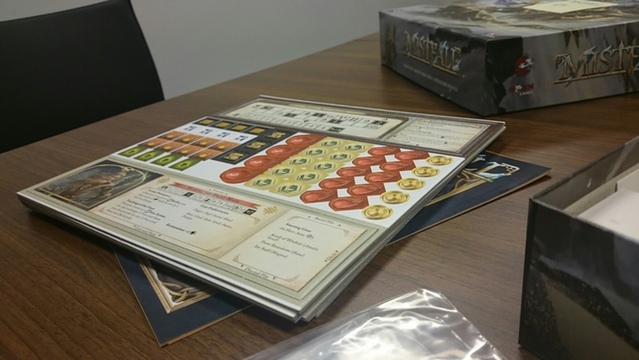 |
| Image Source: Boardgamegeek |
If you’re starting to feel slightly confused by how detached the two above paragraphs are, let me now tie them together. I don’t like party games, because a lot of them try to force me into making silly stuff just for other people to laugh at me – or make other people do silly stuff so that I could laugh at them. And they try to do it in such a ham-fisted way, that the only thing I do feel is embarrassment.
I’m not going to point my finger at any specific transgressors. Suffice to say that if a game simply orders me to cluck like a chicken instead of talking, or play with my forehead on the table, I’ll probably pass. I can make other people laugh at my expense, but I refuse to be the butt of primitive jokes made by someone else. I will not be happy about that, and I will certainly not pay for this type of entertainment.
 |
| Image Source: Boardgamegeek |
So, if your thinking about designing a fun party game, first look at the ones that (over the years) had the most staying power – and that you enjoy (not dread!) coming back to, and then remember one thing: allow me. Specifically, allow me to entertain other players with my blunders. Don’t make me look like an idiot with a forehead on the table. Instead, allow me to find a way to make an idiot out of myself using your entertaining ruleset. I’ll like your party game that much more, I promise.
__________________
FIND OUT MORE NSKN official website | Facebook | BGG
Follow us on Twitter: @NSKNGames





















